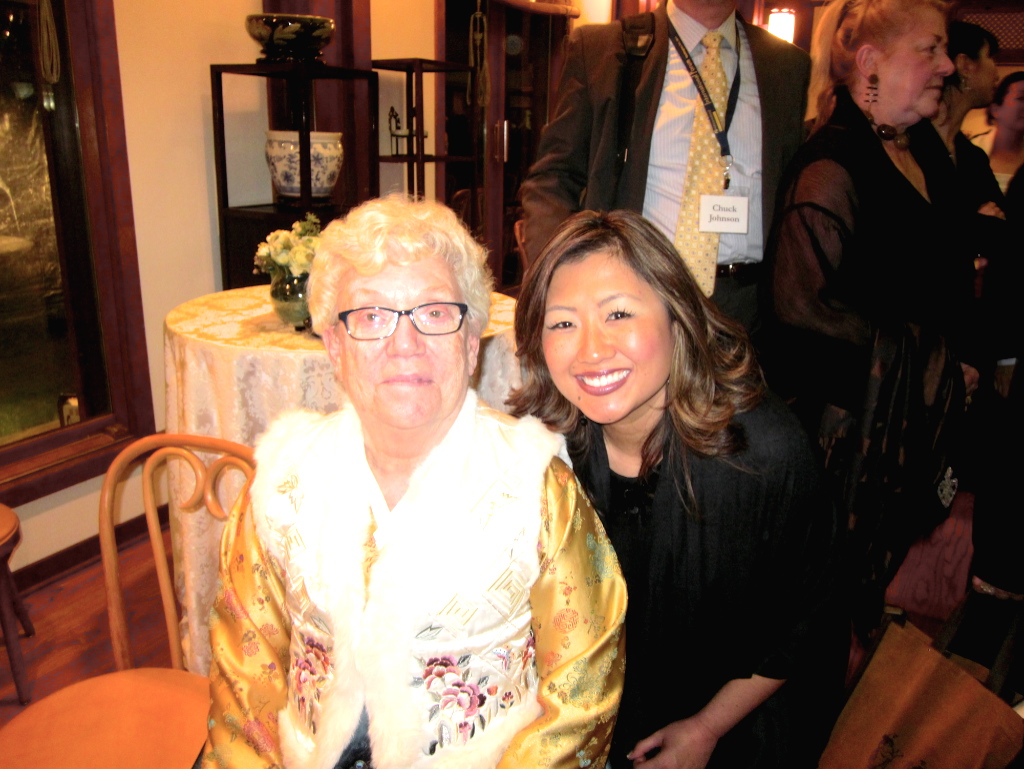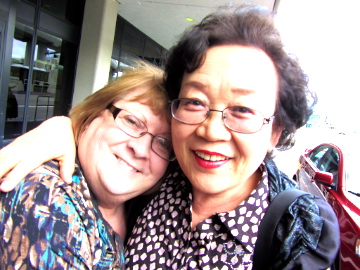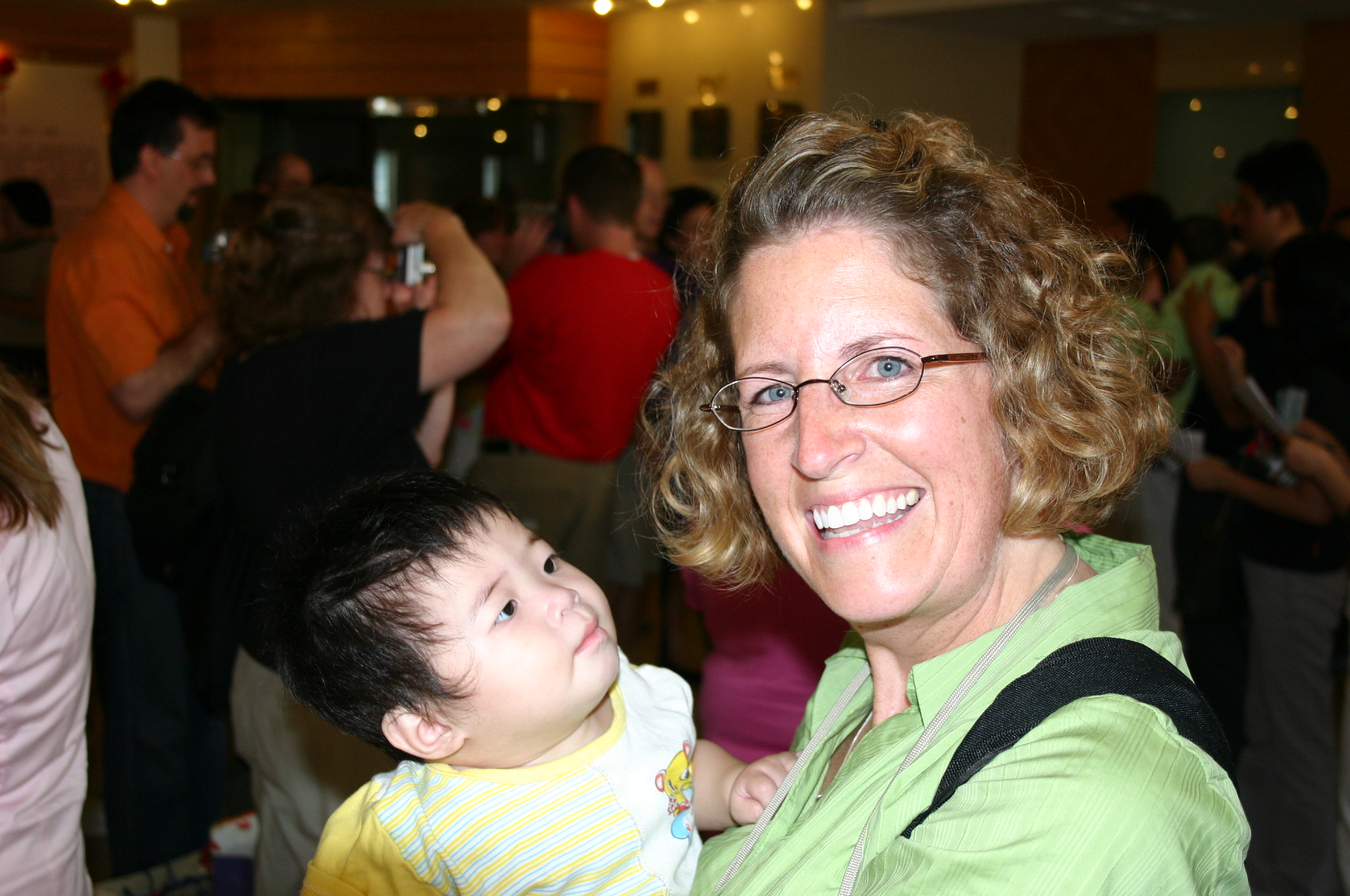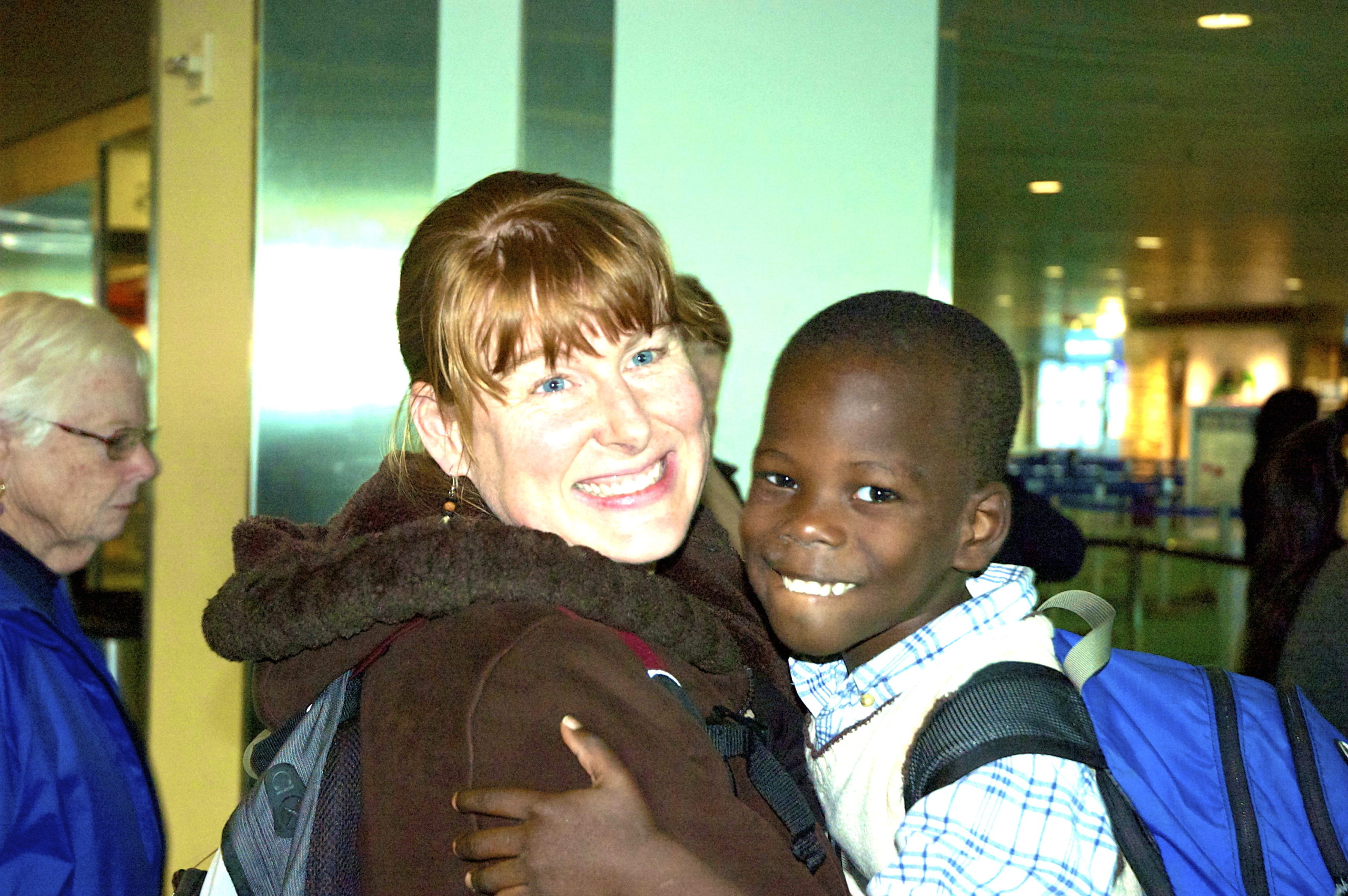Ramblings from a “super adoptee”

Parents may be surprised to hear how some adoptees talk about one another. My friends categorize us as either angry adoptees or super adoptees. It’s certainly not scientific, and it’s definitely not absolute. In fact, it’s just an opinion. However, it could lead people to a good discussion.
I didn’t come up with the term super adoptee; it found me on a balmy summer day in Korea in 2005.
I remember sitting on the balcony of a hotel in Gyeongju with a Korean adoptee I had met just days before. We were participants of a birthland tour and thrown together because of our age. As young professionals, it seemed like a good pairing.
My new roommate’s name was Mary. She made the trip with her parents , though she didn’t hang out with them much. I, however, came alone. It was actually my third trip to Korea. The tour coordinator had asked me to volunteer as an adoptee advocate. My job entailed talking to adoptees and helping them sort through the culture and adoption shock many experience on a first trip. I felt fortunate to be considered worthy of the task, but I knew I had the agency workers’ trust. Though it wasn’t Holt-sponsored, this particular agency commandeered many post adoption services near my hometown, and during my adolescence, I had served several roles for the group at summer camps and teen weekends.
Mary had a life anyone would envy. She was gorgeous, graceful and carried gravitas. It was hard to believe we were the same age. After attending NYU, she moved to Tel Aviv to live an eclectic, intellectual life with her boyfriend. She appeared extremely confident, and I remember even feeling a twinge of jealousy because she seemed so put together.
But sitting on that balcony that day made me realize Mary was envious of me.
“You’re so lucky you know your birth family,” said Mary.
“Why do you think that?” I asked.
We weren’t really looking at each other at that point. We were just staring out at a big pond, overlooking a hotel park where people happily rode rental bikes along an asphalt path.
“You just seem like you’ve found closure,” Mary said.
I knew where this conversation was headed. I had been on the receiving end of this talk before. The most unpleasant experience happened in 1998 when a fresh-faced Korean social worker went rogue and contacted my birth mother without my knowledge. If it hadn’t been for her, I would not have this “closure” Mary assumed I had. When I reunited with my birth family, it not only opened a new can of worms but also put me on the defensive with some angry adoptees who thought I sold out.
“You just make me feel so far behind,” Mary continued. “You’ve gone to Korea camps, you know things about Korea. You even know the language. I know nothing, and I’m so overwhelmed.”
“You’re not behind–“
“You’re like this super adoptee!” she interrupted.
And there it was. Though I had talked with adoptees about this before, Mary was the first person to call it like that. Super? It didn’t sound like a compliment. And, it’s not like I had been trying to be anything in the years leading up to that moment.
In fact, as a kid I never really had interest in anything Korean or Asian. I actually avoided it because it made me different. It was sheer coincidence that I attended a Korean heritage camp at 14. But, I kept going back because my first camp changed me.
The first year I went to summer camp, I met a bunch of teen girls who had a lot in common with me. We were all-American girls with a few Korean-girl problems. We shared many of the same experiences growing up because we were all oddities in our schools. We loved being adopted, but we didn’t always like sticking out in a crowd. It wasn’t what we were learning about Korean culture but more of what we were learning from each other.
“If you think finding closure happens when you meet your birth family, you’re wrong,” I said reassuringly. “In fact, sometimes it complicates things and can even be more confusing.” I went on to tell her about my failed attempts to get medical records or learn much about my family history. To this day, I still don’t know my exact birthplace. If you know anything about Korean people, you know they’re pretty good at avoiding awkward conversations. It’s just the culture, I suppose.
I told Mary how my Korean family lovingly added extra Korean pressures on me – whether it was to lose weight, send them money, or date a Korean boy. They even wanted me to get rid of the mole on my face because they thought it was ugly. Something else to learn about Korean people – they’re proud of you, they just don’t say it. And, they never beat around the bush.
Even after our reunion, it took a couple years for my Korean family to even tell their extended family about me . They were too ashamed to tell everyone right away. I understood, but at the same time, it sort of felt like another rejection.
Before I was born, my Korean mother felt an incredible amount of pressure from her in laws to have a son. Since she already had two toddler girls, she left me in the hospital when I was born. When my father returned from working abroad, she told him I had died at birth. In consoling one another, my birth parents got pregnant almost immediately and had my youngest sister a year later.
As I told my story to Mary, I could see a lightbulb go off in her expression.
“Wow,” she said. “I had no idea how hard it would be for someone like you, too.”
I told her then, that sometimes I thought it would’ve been easier to not know anything.
Mary and I had many more discussions like this on our trip, and I do believe she left Korea with some sort of closure. She went to the hospital where she was born and learned more about her circumstances. It wasn’t the story she necessarily wanted to hear, but at least she could come to better terms with her adoption.
Personally, “closure” is a word I like to avoid when it comes to adoption stories. I don’t feel like we ever really get it because our stories never end. We feel differently about it as we reach a new milestone. Yet, for me, post adoption services like camps and support groups help me navigate my feelings and give added confidence.
I think if Mary had been exposed to more adoption programs before her inaugural birthland trip, she may have not been confused and angry when I met her. Of course, going back to the birth country can be overwhelming for anyone, but I feel like the trips I took to camp every summer as a teen also helped me glide through some of those big adoption moments.
My parents in Missouri set the foundation, but sharing my experiences with other adoptees all those previous years had given me added self-assurance. I believe Mary’s issue was that she felt alone in her journey. That trip had been her first real experience meeting other adoptees and talking about her feelings – which was a lot to take in at once, since she was already dealing with culture shock. I’ve heard a lot of adoptees say how disappointed they were going back to their birthland for the first time because they discover they’re an outsider there, too. It’s a lot to take in on top of finding out more about personal history.
Post adoption programs don’t save people from hitting rough patches or experiencing doubt. But, what they can do is let adoptees and their families know they’re not alone. I didn’t realize it as a child, but camps gave me added confidence that still get me through life as an adult. Even now I meet adult adoptees who – for the first time – are sharing their stories in forums or asking others to hang out over lunch. They want to know their experiences are not uncommon.
I don’t think adoptees need to rush out and find a camp to attend. Parents also shouldn’t force relationships on their children. As long as the conversation is open and the opportunities are there, I think it’s a good start. As a child, I didn’t exactly seek out information about Korea or birth family because I was grateful for the life I was living in the US. Still, having those services readily available was a blessing.
Truthfully, I lucked out with having an intact, happy family in Korea. And, it may be one of the reasons I keep going back. I’ve now known my birth family for nearly half my life, and my sisters’ kids and husbands are more reasons to maintain a healthy relationship. My mom and birth mom even hung out last year in San Francisco.
It’s been a wonderful journey for me, but like everything, it’s had some really emotional ups and downs. What has remained constant is the support I find in my husband, parents and the hoards of adoptive families I’ve met through the years. Closure may never come for me, but I’m definitely more content because of the adoption community. And, much of that is from using the tools adoption agencies put together for families.
If you haven’t had the opportunity to utilize the resources, you could be missing out on a chance to do something good for your soul. It’s never too late to reach out, just like it’s never too early for parents to have a conversation with their kids. If it makes you a super adoptee, then so be it. I can’t imagine living a life angry when super is within reach.
By Michelle Li
Learn more about Holt’s post adoption services.
Are you interested in continuing your adoption journey? Join Holt on a heritage tour to Korea this summer!



Great story, Michelle. I am sharing it with my friends who have adopted their son from Guatemala. I feel blessed to say you are my friend. Love ya!